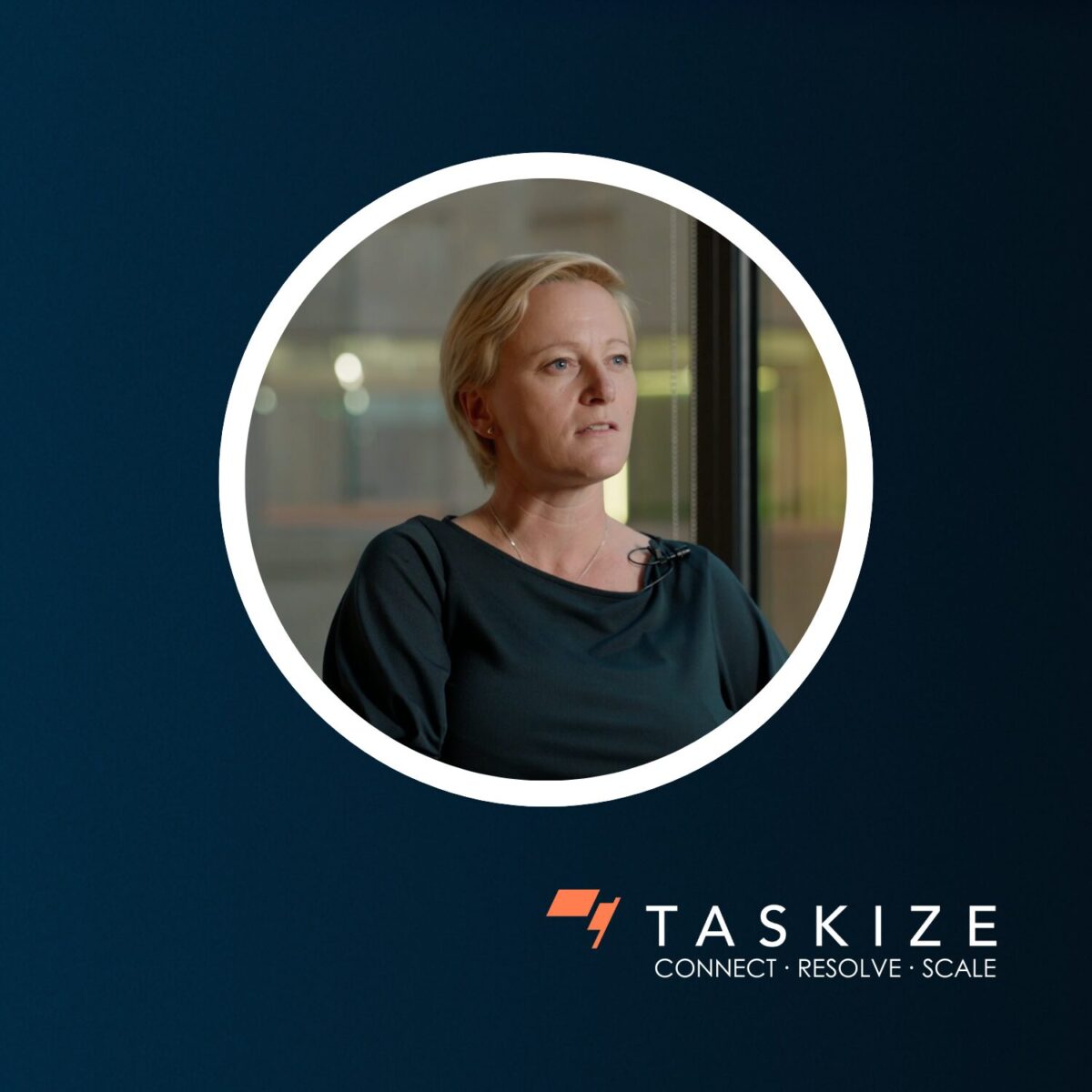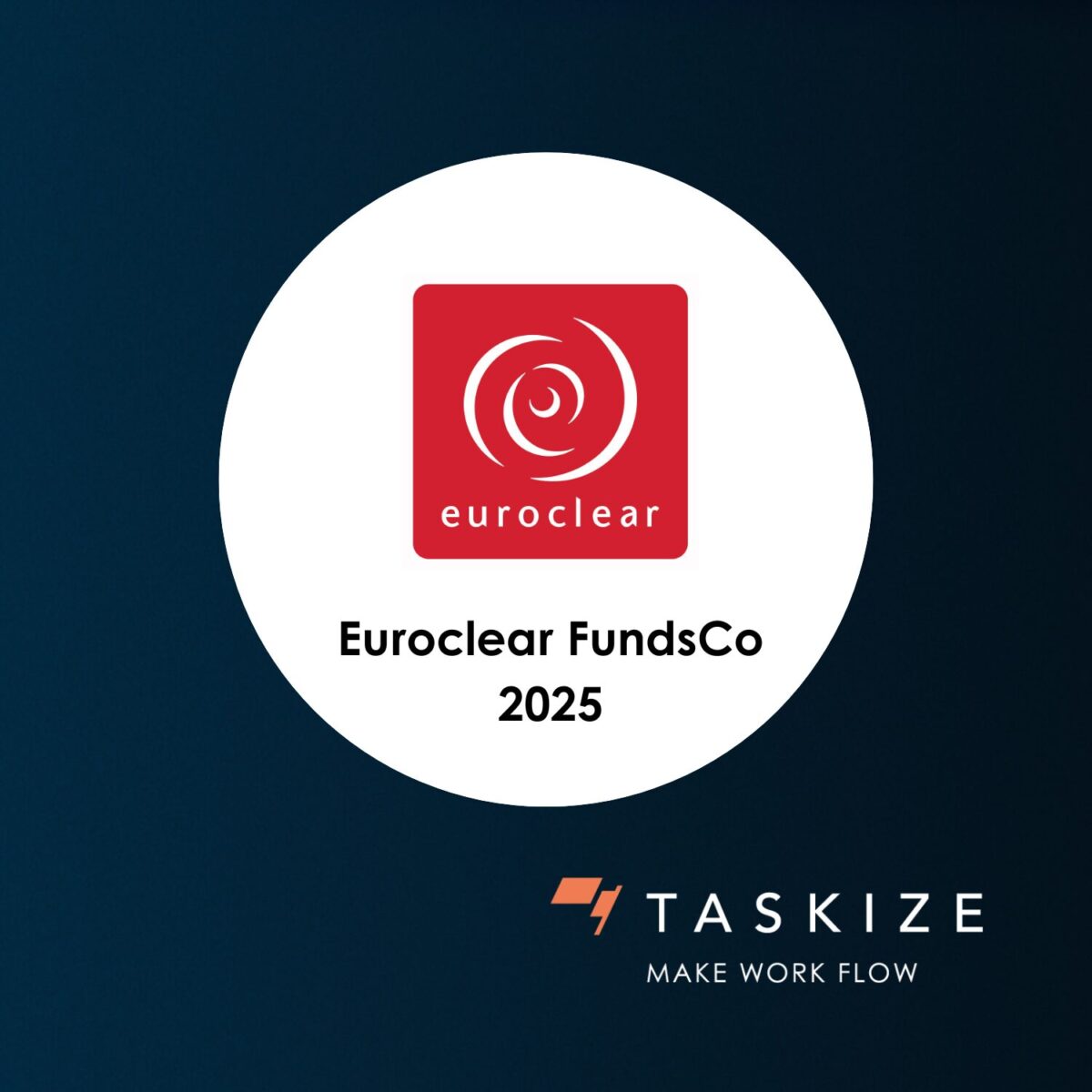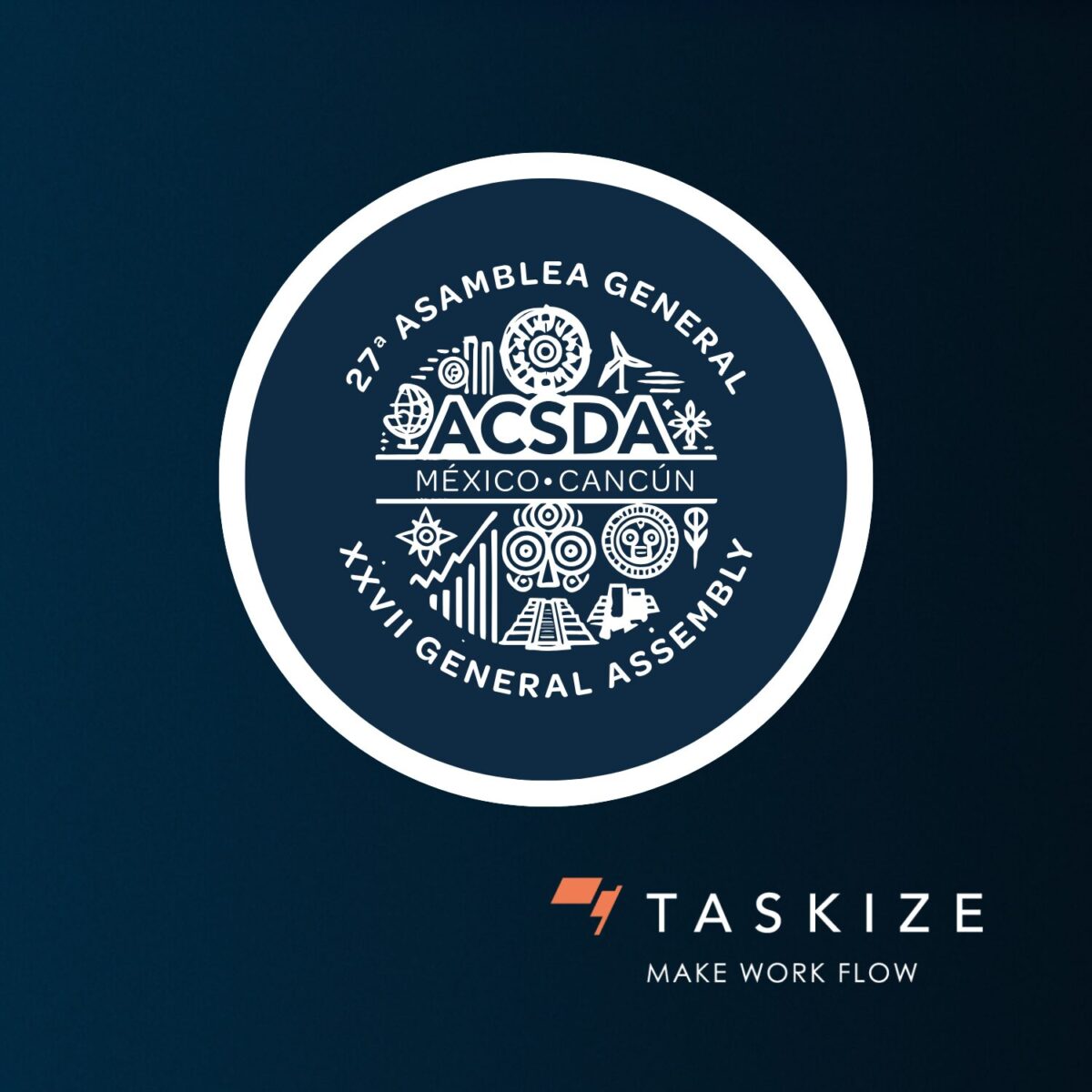People & Culture
Taskize recently attended PostTrade 360° Nordic 2024, where industry leaders, decision-makers, and innovators discussed the future of post-trade operations.
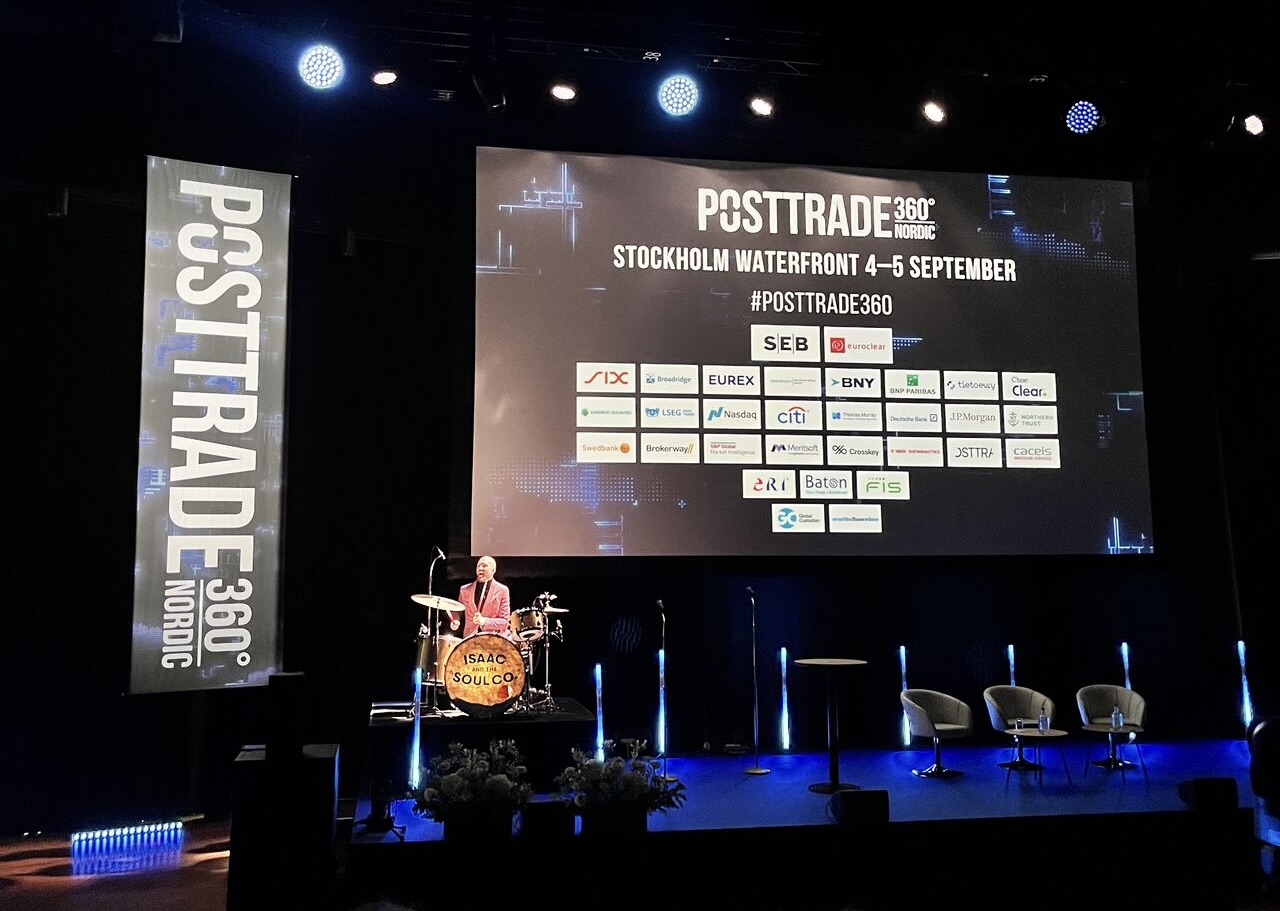
Our team – Sam Gardiner, Jamie Sukumaran, Tara Costello, Cheen Dang, and Miles Trueman –connected with new and familiar faces from across the region from the booth of our parent company Euroclear. We spoke to how Taskize optimises exception resolution workflows and trade settlement processes and, with that as context, talked about and discussed four key issues:
1. ‘The forces shaping post trade through 2025 and beyond’
The opening session of PostTrade 360° 2024 set the tone for the event, featuring a panel of strategic decision-makers exploring the forces shaping the future of post-trade.
Philippe Laurensy, Head of Group Strategy, Product Management, and Innovation at Euroclear (Taskize’s parent company), highlighted the critical role of trust and resilience in post-trade operations.
Philippe emphasised that while regulation remains a cornerstone for Financial Market Infrastructures (FMI), embracing technology and focusing on client needs are crucial to navigating the evolving market landscape.
“At Euroclear, we’re here to make your life easier: reduce risk, reduce cost, and reduce capital. So, we always try to identify ‘pain points’ and when we find one – and there are many in post-trade – we try to find a solution.”
“In post-trade, I think Taskize has found a way to streamline the way we manage query resolution in a more efficient manner than using email, phone calls and the like.”
2. ‘Is faster actually better?’
As markets shift towards shorter settlement cycles, the conversation around T+1 gained prominence. Alan Cameron from BNP Paribas led a discussion on the implications of moving to T+1, particularly for the European markets still deliberating their approach.
The key insight from this session was clear: while T+1 reduces pre-settlement risk and can lead to cost savings; it also presents new challenges. For instance, in FX liquidity and stock lending, reduced processing time can complicate the management of these activities.
Furthermore, as the UK aims to transition to T+1 by 2027, coordination among CSDs (Central Securities Depositories) will be crucial. As the industry moves forward, stakeholders must carefully weigh the benefits and costs of these changes.
Check out our ‘T+1 – The post-trade automation handbook’, where we explore wider industry considerations surrounding T+1, challenges throughout the settlement cycle and pain points in the current setup.
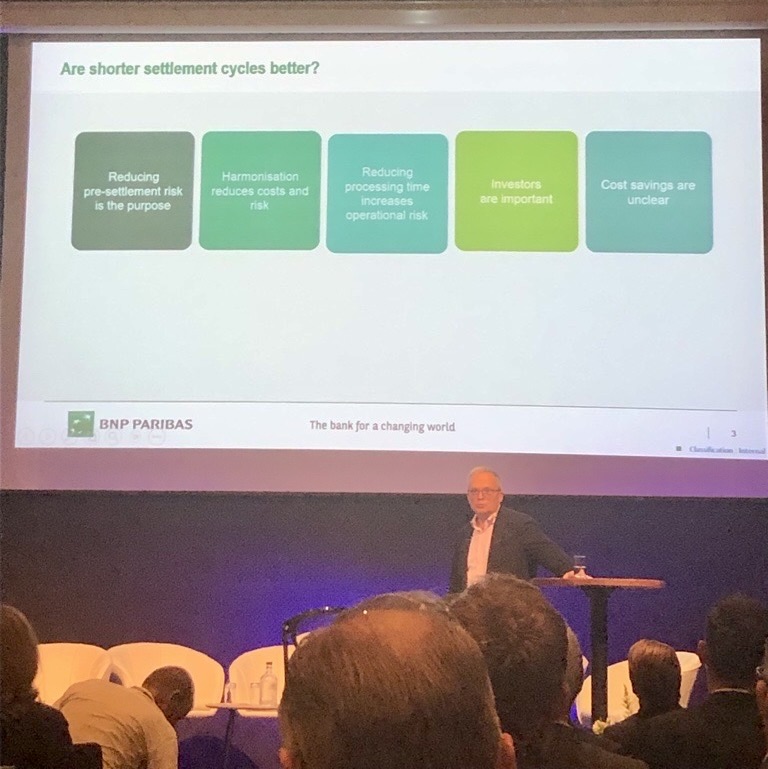
3. ‘The fintechs, the global custodians, and their cooperation-competition balance’
The balance between fintech innovation and traditional custodian services was another hot topic at the conference. With the rise of cloud connectivity, DLT (Distributed Ledger Technology), and fee pressures, global custodians and fintechs find themselves in a dance of cooperation and competition.
As custodians aim to differentiate themselves through superior service offerings, Taskize’s ability to streamline exception management and facilitate seamless communication between counterparties becomes even more valuable.
Firebrand Research’s statistics on the future of custodians suggest that nearly half foresee continued consolidation, while a significant portion plans to expand their offerings and support investors more broadly.
In this dynamic landscape, collaboration with fintechs like Taskize can help custodians add real value and gain a competitive edge.
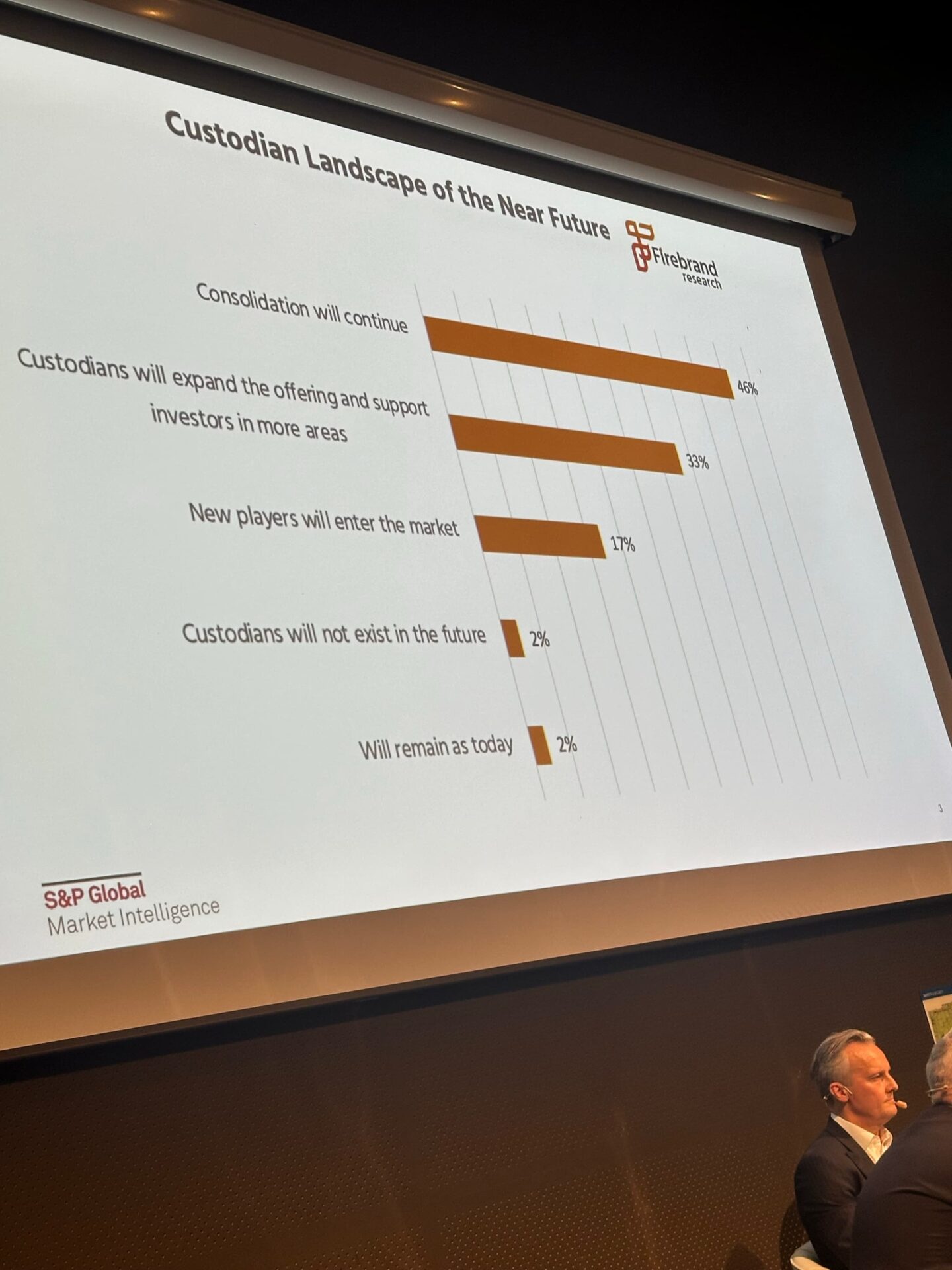
The final discussion centred around optimisation – a critical topic in the face of increasing regulatory demands and a rapidly evolving market environment. OSTTRA’s session delved into how firms can optimise across capital, collateral, and workflows to improve efficiency.
Taskize’s take on optimisation focuses on end-to-end solutions for margin and collateral management. By optimising the collateral process – from data collection and margin calls to settlement – financial institutions can achieve faster and more cost-effective outcomes.
As market volatility impacts the amount of collateral clients must post, having a streamlined process becomes invaluable. The debate between internal vs. external optimisation solutions remains ongoing, but Taskize’s network approach and interoperability between front and back offices provide a compelling case for leveraging external expertise.
